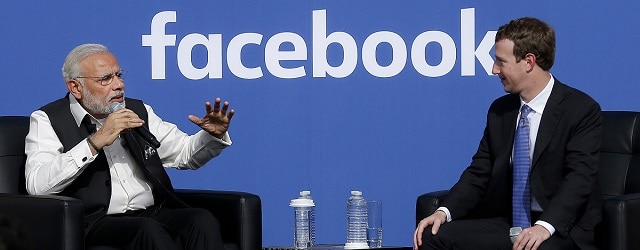Facebook adds a new trick to its playbook: junior partnership.

In a striking departure from Facebook’s habit of acquiring companies outright, the social media giant announced a $5.7 billion investment buying a 9.9% stake in Reliance Jio on April 22 in what is the company’s single largest investment outside the US. Reliance Jio is the wholly owned digital services and telecommunications subsidiary of Reliance Industries, the $83.2 billion Indian conglomerate controlled by Asia’s richest man, Mukesh Ambani. This investment has the potential to be a masterstroke given Reliance Jio’s modern nationwide 4G mobile, fibre to the home (FTTH) network and deep penetration of the Indian digital marketplace with 388 million mobile subscribers, all achieved in just four years. Reliance Jio’s mobile and broadband services are integrated with JioMart, a digital marketplace for small businesses, which will be the area of focus for the new partnership.
Reliance Jio will integrate Facebook’s WhatsApp into the Jio platform and its retail business, which could enable the use of WhatsApp as a transaction and customer service mechanism. With 400 million users—that is, one-third of the population—WhatsApp is already India’s preferred means of social media communication but Facebook has been unable to monetize this dominance despite building capability in commerce and payments. This failure was due in part to disputes with the national payments regulator (National Payments Corporation of India) over data localization. While Facebook’s effort stalled, the digital real-time payment space developed very rapidly: 10.0% of GDP now flows through the real-time digital unified payments interface (UPI) just three years after the government launched it. Walmart’s digital payments platform PhonePe, Google Pay and Indian payments giant Paytm combined control 90.0% of the system’s 1.3 billion average daily transactions.
The Facebook-Reliance Jio deal is an indication of where India’s digital payments space is going and how the nature of foreign investments in that space is being shaped by government policy. After Facebook’s competitors Walmart and Amazon made significant investments in Indian online retailing business and domestic acquisitions, the Modi government changed the rules to favor domestic online retailers and the millions of small retailers threatened by competition from the two global behemoths. Both companies adapted to these changes by repositioning their online platforms to cater to the country’s 60 million small businesses rather than be directly consumer-facing.
As early entrants into Indian e-commerce, Walmart and Amazon faced steep learning curves in adapting their business models to local conditions. Walmart spent $16 billion acquiring a majority stake in the popular B2B platform Flipkart (owner of PhonePe) and Amazon invested $5 billion and counting to set up street- and mall-based kiosks to facilitate online purchases and conclude agreements with Indian railways to ferry packages. Teaming up with a very powerful and savvy domestic partner will allow Facebook to leapfrog over the costly developmental difficulties faced by Amazon and Walmart as they built supply chains from scratch and adapted to 3G networks. The potential for Facebook-Reliance Jio to aggregate the country’s highly fragmented retail businesses is enormous given that only $60 billion out of $1.1 trillion in retail sales are conducted online. Successfully monetizing WhatsApp through this partnership would reduce Facebook’s dependence on mobile ads for revenue and could provide a template for future deals in other markets.



